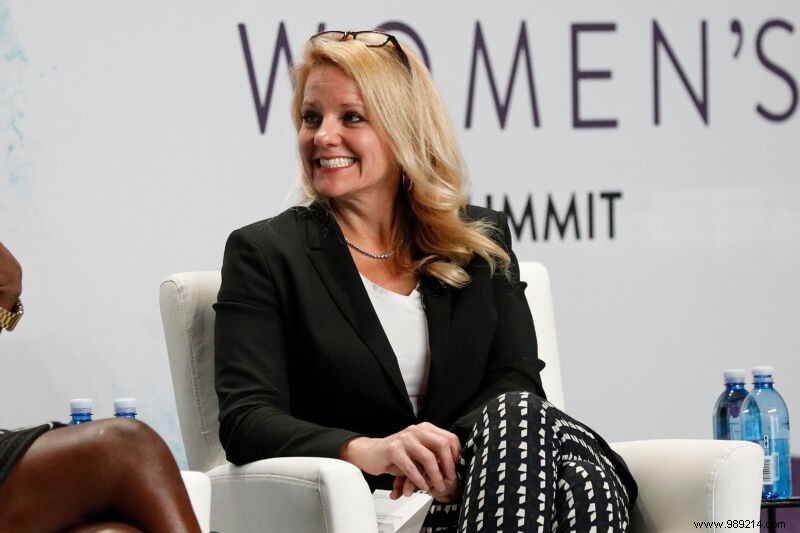After trying to poach Gwynne Shotwell, the current president and COO of SpaceX to run Blue Origin in 2016, Jeff Bezos finally turned to Bob Smith. A wise choice? The past four years lead us to think not.
The book Amazon Unbound:Jeff Bezos and the Invention of a Global Empire , signed by American journalist Brad Stone and published on May 11, reveals several things to us. Much of this book obviously deals with Bezos' relationship with his e-commerce site, Amazon. We also learn the name of the interpreter of the voice used by default by millions of Alexa devices (Nina Rolle). However, it is another chapter, dedicated to Blue Origin, that interests us today.
In this book, Brad Stone tells us in particular that in the fall of 2016, the founder of the company focused on aerospace began to worry about the lack of progress made by his company . Its main competitor, SpaceX, already had a good head start in the sector, already recovering its Falcon 9 boosters on platforms at sea (which changed everything), and winning several government contracts, notably from NASA. and the Department of Defense.
The journalist tells us that Bezos, a little distraught, had at the time invited several Blue Origin executives to his Seattle office to take stock. During these interviews, some leaders would then have complained of internal communication problems, endless meetings and not necessarily very judicious expenses.

According to this book, these discussions would then have led Bezos to want to hire, for the first time, a CEO for the company. After informing Rob Meyerson, the president of Blue Origin, of his intentions, Bezos then approached Gwynne Shotwell, the current president and chief operating officer of SpaceX. Present since the beginning of the adventure in 2002 after being hired by Musk in a quarter of an hour, she naturally refused this opportunity .
After a year-long search, Bezos finally turned to Bob Smith, then a senior executive at Honeywell Aerospace. Its objective:to make Blue Origin a major player in the space sector and to start winning government contracts, such as SpaceX. Unfortunately for Bezos, this choice may not have been the right one.
And for good reason, in completing his management team, the new CEO of Blue Origin relied on several executives from, let's say, very "traditional" companies. Many of its recruits came from Raytheon, Lockheed Martin, Boeing and even Northrop Grumman. In short, they were equally brilliant companies, but built on a culture of caution . This vision obviously contrasts with that of SpaceX, which is very focused on taking risks.

Partly because of this slow pace of development, Blue Origin has lost even more ground to its main competitor.
Just a few years ago, the two companies seemed on the cusp of a particularly exciting space race, but while SpaceX has already launched and collected more than 100 rockets, released more than 1,500 of its own satellites into orbit and transferred several crews of astronauts to the ISS, Blue Origin has only piloted its New Shepard suborbital launcher 15 times . And if a first crewed flight will probably take place in July, this step forward will not allow the company to catch up.
Regarding government contracts, again, Blue Origin is on the sidelines. The company has indeed just been excluded from a series of launch contracts on behalf of national security, won by United Launch Alliance and SpaceX. This shelving is logical given that its New Glenn launcher is still far from being operational . And let's not forget NASA, which also turned to SpaceX as the one and only supplier of its next lunar lander, much to the chagrin of Bezos, who decided to file a complaint.
Things could soon change for the company, however. Recently, Jeff Bezos announced that he would step down as CEO of Amazon this summer to become its executive chairman. Going forward, he promised to dedicate more of his time and business skills to Blue Origin. It remains to be seen whether his involvement will be sufficient. Only time will tell.